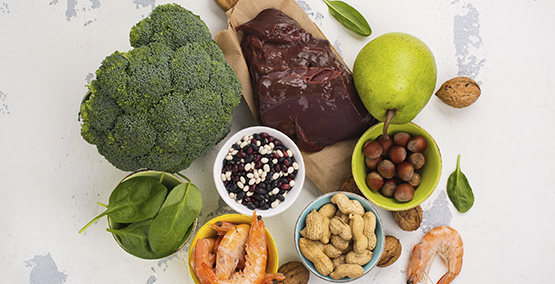
The Latest and greatest treatments for IBD: What to believe
What’s the best IBD medicine for me? Confusion on television and in your inbox....
See moresign up for our newsletter
Subscribe
Folate, sometimes called Vitamin B9 or folic acid, helps make and repair our DNA and red blood cells. Without folate, you can develop a severe anemia that can be mistaken with an iron deficiency.
All three factors listed above reduce the absorption of dietary folate. If folate levels are low, overtime you or your child may develop a folate deficiency.
Worth noting, the symptoms of a folate deficiency are similar to a vitamin B12 deficiency. There are, however, different tests that can determine which nutrient you are low in. If you are low in folate, you can increase folate rich foods into your diet and take a folic acid supplement as needed.
For most people, eating folate rich foods provides enough folate to stay healthy (400 milligrams). However, if you have low folate from inflammation, surgery, or medication, you may need a folic acid supplement. For example, your doctor may prescribe a daily supplement of 1000mg or weekly dose of 5000mg. Additionally, if you are pregnant with IBD, you should be taking a prenatal vitamin (which contains folic acid). As a result, folate can prevent neural tube defects in your developing baby.
This article, as well as all others, was reviewed and edited by a member of our Medical Advisory Board.
Subscribe Be the first to know